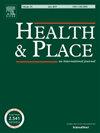“Poor and Dirty”: Unintended consequences in a hygiene material Distribution in Burkina Faso
IF 3.8
2区 医学
Q1 PUBLIC, ENVIRONMENTAL & OCCUPATIONAL HEALTH
引用次数: 0
Abstract
The practical interrelationships between the African environment and hygiene practices during a pandemic period is a topic of significant importance. Specifically, this research explores the intersection of cultural dynamics and hygiene practices in Burkina Faso, focusing on a recent example of distribution of hygiene materials. It highlights the negative reactions to these foreign interventions, perceived as patronizing and stigmatizing, which underscores the complexities of implementing health initiatives in diverse socio-cultural landscapes. These findings stress the importance of culturally sensitive approaches and greater engagement in public health initiatives like the latrine usage with specific designs for communities.
"贫穷与肮脏":布基纳法索卫生用品分发活动的意外后果
非洲环境与大流行病期间卫生习惯之间的实际相互关系是一个非常重要的课题。具体而言,本研究探讨了布基纳法索文化动态与卫生习惯之间的相互关系,重点是最近分发卫生材料的一个实例。研究强调了人们对这些外来干预措施的负面反应,认为这些干预措施具有赞助性和侮辱性,这凸显了在不同社会文化背景下实施卫生倡议的复杂性。这些研究结果强调了对文化敏感的方法和更多地参与公共卫生倡议的重要性,如使用为社区设计的特定厕所。
本文章由计算机程序翻译,如有差异,请以英文原文为准。
求助全文
约1分钟内获得全文
求助全文
来源期刊

Health & Place
PUBLIC, ENVIRONMENTAL & OCCUPATIONAL HEALTH-
CiteScore
7.70
自引率
6.20%
发文量
176
审稿时长
29 days
期刊介绍:
he journal is an interdisciplinary journal dedicated to the study of all aspects of health and health care in which place or location matters.
 求助内容:
求助内容: 应助结果提醒方式:
应助结果提醒方式:


